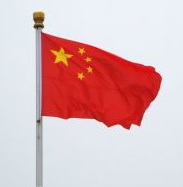Novartis agreed to fork over $25 million to settle a Securities and Exchange Commission investigation into bribery allegations in China. It's the latest example of corruption claims made against the Swiss drugmaker's operations in Asia.
 According to the SEC, Novartis ($NVS) offered Chinese doctors lavish entertainments--including a junket to Chicago and Niagara Falls--and other inducements to boost prescriptions of its drugs in the country.
According to the SEC, Novartis ($NVS) offered Chinese doctors lavish entertainments--including a junket to Chicago and Niagara Falls--and other inducements to boost prescriptions of its drugs in the country.
The allegations mirror those against a variety of other drugmakers that have settled similar investigations by the U.S. government and foreign agencies. The biggest settlement--and most far-reaching example of bribery in China--was the $489 million fine levied against GlaxoSmithKline ($GSK) in 2014, which capped off an investigation into hundreds of millions in inducements for doctors and other healthcare officials, many of them booked as travel and meeting expenses.
According to the SEC, the Chinese units of Novartis and its generics business, Sandoz, booked illicit expenses as legitimate expenditures. For instance, two sales reps at Sandoz China submitted $8,100 in expenses--approved by a regional sales manager--that covered entertainment and gifts for healthcare providers.
China employees also maintained spreadsheets that offered evidence of a quid pro quo setup: A "certain cash value to be paid for a certain number of prescriptions per month," the SEC said in a cease-and-desist order dated Wednesday.
Novartis also "failed to devise and maintain an effective system of internal accounting controls or an effective anti-corruption compliance program," the agency said.
That's changed, according to a Novartis statement. "The issues raised by the SEC, which relate to our subsidiaries in China and go back as far as 2009 and largely pre-date many of the compliance-related measures introduced by Novartis across its global organization in recent years," the company said in an email.
In its order, the SEC noted that Novartis had launched an internal review of its Chinese operations in 2013, amid the GSK bribery scandal. It turned up potentially improper activity and overhauled its relationships with event planners, among other things. It also improved internal controls and terminated or disciplined "culpable employees," the agency said.
The Novartis settlement, wrapped up late Wednesday, includes a $21 million disgorgement, $2 million in civil penalties and $1.47 million in interest. The company did not admit wrongdoing as part of the deal, the SEC said.
 |
| Novartis pharma chief David Epstein |
The settlement follows news of a South Korean kickbacks probe at a Novartis unit there. The Seoul Western District Prosecutor's Office raided Novartis' offices there last month, confiscating documents and account books, according to local media reports. At issue are "rebates" paid to local doctors--in the form of cash and other incentives--that might be construed as illegal kickbacks designed to amp up sales.
Reporting failures have haunted Novartis in Japan as well. Last spring, the Japanese government suspended Novartis' operations in that country, putting the company's business on hold for 15 days as punishment for failing to properly report drug side effects. Novartis sales reps also were caught running errands in a leukemia drug trial, throwing that research into doubt. Novartis pharma chief David Epstein has repeatedly apologized for the scandals, and the company cleaned house at the Japan unit, bringing in new managers and putting employees through remedial training.
- read the SEC order
Special Reports: Top 10 pharma companies by 2013 revenue - Novartis | The top 10 best-selling drugs of 2013